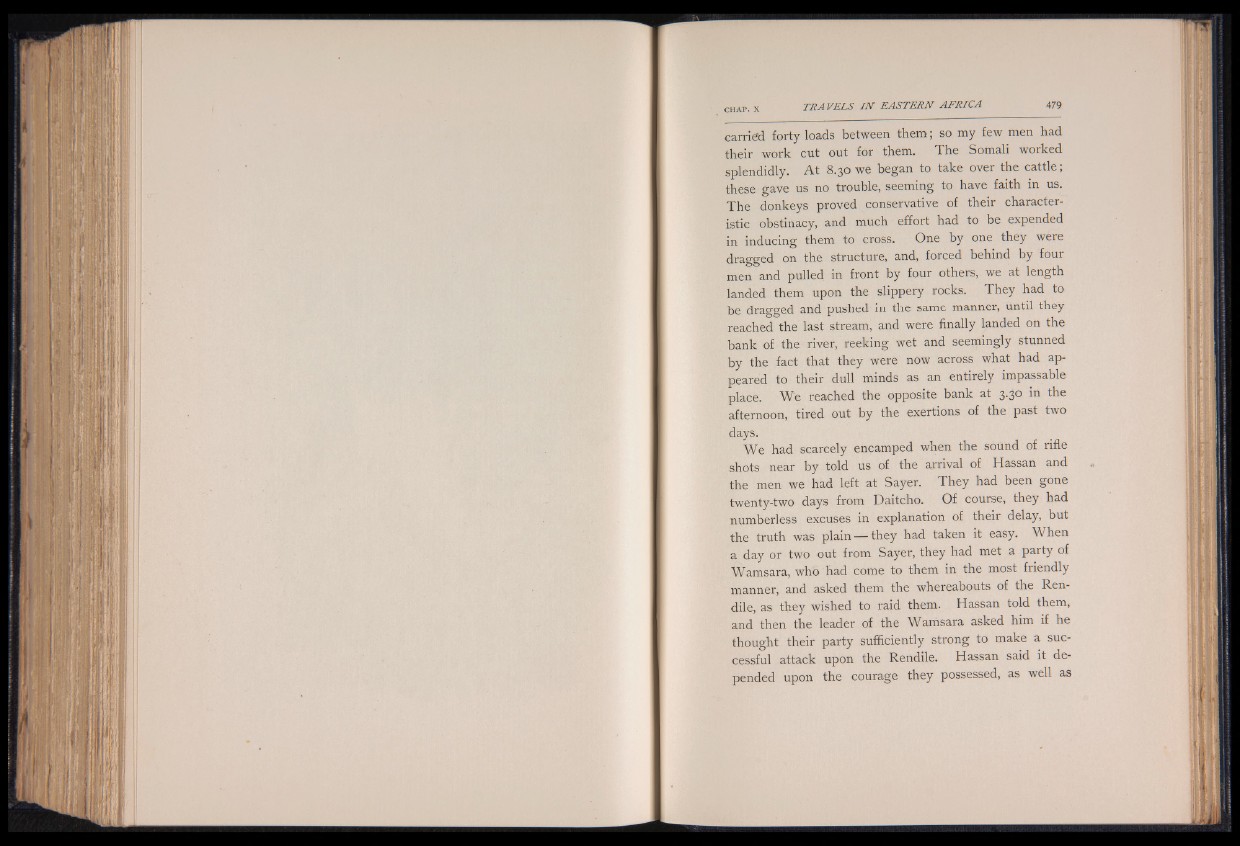
i l I f f
i l
EH!
T R A V E L S I N E A S T E R N A F R IC A 479
carried forty loads between them; so my few men had
their work cut out for them. The Somali worked
splendidly. At 8.30 we began to take over the cattle;
these gave us no trouble, seeming to have faith in us.
The donkeys proved conservative of their characteristic
obstinacy, and much effort had to be expended
in inducing them to cross. One by one they were
dragged on the structure, and, forced behind by four
men and pulled in front by four others, we at length
landed them upon the slippery rocks. They had to
be dragged and pushed in the same manner, until they
reached the last stream, and were finally landed on the
bank of the river, reeking wet and seemingly stunned
by the fact that they were now across what had appeared
to their dull minds as an entirely impassable
place. We reached the opposite bank at 3-3° the
afternoon, tired out by the exertions of the past two
days.
We had scarcely encamped when the sound of rifle
shots near by told us of the arrival of Hassan and
the men we had left at Sayer. They had been gone
twenty-two days from Daitcho. Of course, they had
numberless excuses in explanation of their delay, but
the truth was plain — they had taken it easy. When
a day or two out from Sayer, they had met a party of
Wamsara, who had come to them in the most friendly
manner, and asked them the whereabouts of the Ren-
dile, as they wished to raid them. Hassan told them,
and then the leader of the Wamsara asked him if he
thought their party sufficiently strong to make a successful
attack upon the Rendile. Hassan said it depended
upon the courage they possessed, as well as